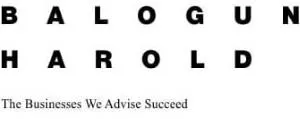Nigeria has recently published a draft of its proposed social media laws. There are important thematic similarities between Nigeria's social media laws and the proposed H.B. No. 20 in Texas, the European Digital Services Act, the UK Online Safety Bill and the Indian Intermediary Rules. Although, the proposed social media law, is entitled a "code of practice", suggesting that social media companies need to sign-up to the code of practice for legal effect, there is language in the proposed social media law which makes certain that the code of practice in intended to be legally binding, without further recourse to social media companies.
A copy of the proposed social media law is available here
The key themes of Nigeria's proposed social media law revolve around
- Unlawful Content
- Content moderation
- Anonymity
- Misinformation
- Harmful Content
- Disinformation
- Compliance with Nigerian Law
- Incorporation in Nigeria & Appoint of a Liaison Officer
- Prohibited Materials
- Assistance of government in criminal investigations
- Resolution of User Complaints
- Removal or censorship of unlawful content
- Mandatory verification of government accounts
- Minimum standards for Terms of Use
- Protection of children
- Online Harm
- Preservation of records
- Filing an Annual Compliance Report
Key Takeaways
- Nigeria's proposed social media law is not act of the
parliament but a set rules of published by Nigeria's
information technology regulator (the
"NITDA"). The rules are still a draft
and therefore do not have the force of law, leaving room for
engagement by industry
- Nigeria's proposed social media law does not contain any
new protections for social media companies. Nigeria has no legal or
regulatory construct similar to Section 230 (c) (1) & (2) of
the Communications Decency Act, with the implication that,
providers of interactive computer services
("Platforms") will likely be treated by
Nigerian courts as "publishers", for purposes of
liability. Platforms can also be held fully liable for
third-party/user-generated content posted on their platforms.
- Social media companies are not classified as "common
carriers" under Nigeria's social media rules and
there is no prohibition against censorship of user's content
based on the views of a user.
- A variety of laws are applicable to social media platforms in
Nigeria. For instance, whilst the Nigerian Broadcasting Commission
(NBC) broadly regulates broadcast content, the NITDA may also
broadly regulate social media companies as a type of information
technology platform. To the extent that a platform's activities
involves the publication of public-facing content or the exercise
of editorial discretion over user-generated content, both NITDA and
NBC would have some level of regulatory oversight over the
activities of social media platforms. Similarly, advertising, tax
and consumer protection regulators would also have regulatory
oversight.
- There is a clear intention by Nigeria to regulate social media
companies , following regulatory trends in the the UK, America,
India & the US . It is therefore important for Platforms to
strategically engage regulators towards ensuring a final version
that reflects industry practice and greater balance between freedom
of speech and public interest. There are a number of issues which
require further engagement, some of which include:
- The need to review the definition of Large Service Platforms
(LSPs), currently defined as platforms whose users are more than
100,000. Amongst other requirements, LSPs are required to set up a
subsidiary and appoint a liaison officer.
- The need to streamline social medial regulations across
regulators
- The need to streamline the definition of "interactive
computer service platforms"
- The need for legal protection for third party-user generated
content
- The need to review the obligation to file annual reports
- Mandatory local incorporation
- Clarification of the scope of intermediary liability. For instance, the proposed social media law provides that a platform will not be "liable" where a platform takes all reasonable steps to "take down" unlawful content.
- The need to review the definition of Large Service Platforms
(LSPs), currently defined as platforms whose users are more than
100,000. Amongst other requirements, LSPs are required to set up a
subsidiary and appoint a liaison officer.
The content of this article is intended to provide a general guide to the subject matter. Specialist advice should be sought about your specific circumstances.
